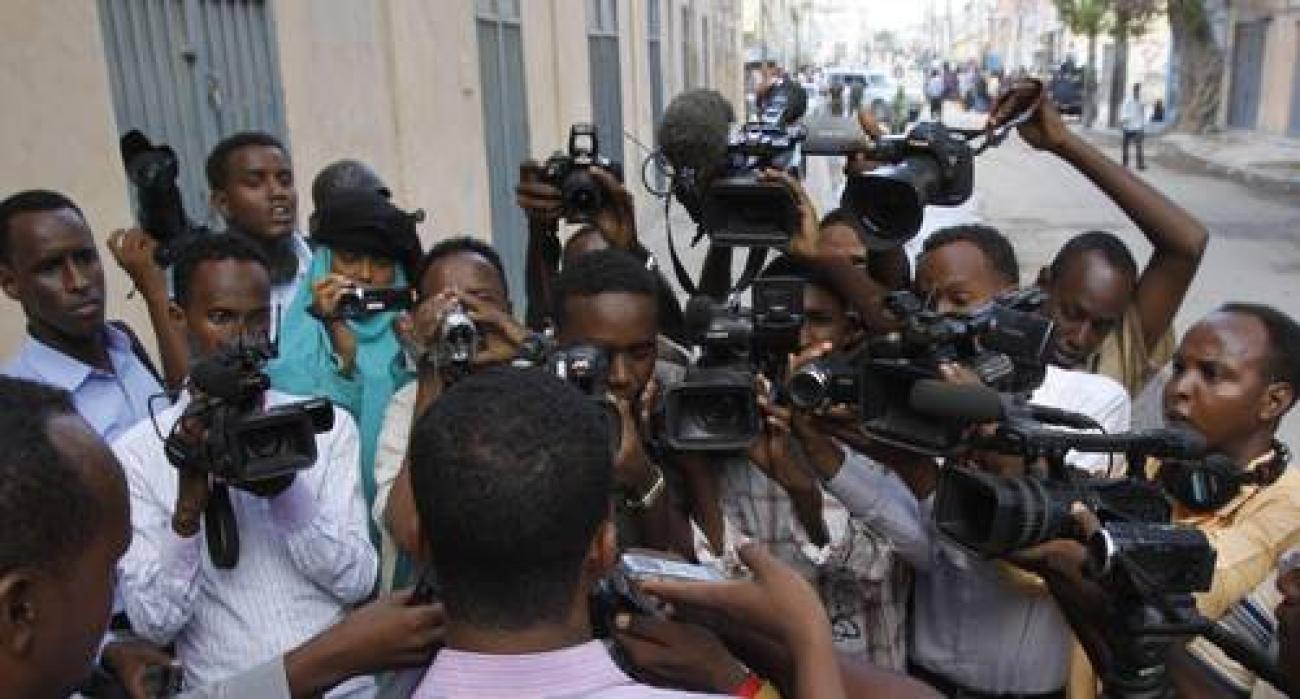Somalia Judges and Prosecutors call for more capacity to combat impunity against journalists

A two-day training of Somalia judges and prosecutors ended with a call to find common platforms for the media and the judiciary to promote freedom of expression
A two-day training of Somalia judges and prosecutors ended with a call to find common platforms for the media and the judiciary to promote freedom of expression and safety of journalists in Somalia. The training, taking place from 17 to 18 march 2018 in Mogadishu, Somalia, was organized by UNESCO as part of its efforts to strengthen the capacity of African judges to play their rightful role as duty bearers in defending and protecting freedom of expression and the safety of journalists.
A two-day training of Somalia judges and prosecutors ended with a call to find common platforms for the media and the judiciary to promote freedom of expression and safety of journalists in Somalia. The training, taking place from 17 to 18 March 2018 in Mogadishu, Somalia, was organized by UNESCO as part of its efforts to strengthen the capacity of African judges to play their rightful role as duty bearers in defending and protecting freedom of expression and the safety of journalists.
A total of 18 judges and prosecutors gathered to discuss issues ranging from the importance of freedom of expression, the safety of journalists, defamation, and Somalia’s commitment to the international and African human rights frameworks. The training exposed judges to some of the landmark judicial decisions on freedom of expression and press freedom with specific reference to criminal defamation and safety of journalists and the issue of impunity.
During the official opening, the Chief Justice of Somalia, His Lordship Ibrahim Eidle Sulaiman emphasized the need for rule of law as the basis for respecting the rights of journalists. “When there is rule of law, journalists and judges will be able to do their respective work properly. Journalists should act within the law, as well as judges”. The Chief Justice also emphasized the importance of evidence as a foundation for good journalism, especially when journalists produce stories about specific cases and individuals. He emphasized that the judiciary should recognize and appreciate the role of journalists in building democratic and sustainable societies, including Somalia.
During the training, judges and prosecutors were taken through a list of international human rights instruments and protocols, especially those that relate to freedom of expression, access to information and safety of journalists, as well as an account of those instruments that Somalia had ratified. The Protocol on the establishment of an African Court on Human and People’s Rights was identified as one of those protocols that had not been ratified by Somalia. The Judges and prosecutors also discussed the issue of impunity in crimes against journalists, which has featured prominently in various human rights reports about Somalia. They observed that while impunity in crimes against journalists prevail, it is not because there is lack of political will to punish perpetrators of crimes against journalists. Rather, they observed, there was widespread impunity generally in Somalia because of the fragile context coupled with nascent institutions. They therefore appreciated the training of judges as one of the interventions that would strengthen their capacities in addressing the issue of impunity. They also requested that similar trainings be extended to the regions to allow as many members of the judiciary as possible to benefit from the trainings.
Participants also debated the issue of criminal defamation and false news some of the limitations in the enjoyment of freedom of expression and freedom of the press, arguing that the issue of decriminalization should be addressed by the media law, which is in its final stages of review.
During the closing ceremony, the Governor of Benadir Region and Mayor of Mogadishu, H.E. Abdirahman Omar Osman (Eng Yarisow), applauded UNESCO’s initiative to train judges and prosecutors as supplementing the efforts of the Somalia’s government to promote freedom of expression and freedom of the press. The Mayor requested UNESCO to ensure that more such trainings are organized in the regions. “I hope this training will not be the last, but the first of similar trainings even in the different regions of Somalia. The Mayor further requested UNESCO to organize joint trainings for judges, prosecutors and journalists, as platforms for furthering dialogue between the media and the judiciary. Such dialogue, he said, was essential for creating mutual understanding in promoting freedom of expression and safety of journalists.
The training of judges and prosecutors in Somalia one among similar interventions in Africa and Latin America. Last year, a similar course was conducted for judicial actors in Africa and it attracted judges from 13 countries and the Economic Community of West Africa court. The judges came from countries including Cameroon, Ethiopia, the Gambia, Ghana, Guinea, Mauritania, Mozambique, Nigeria, South Africa, South-Sudan, Uganda, Tanzania, and Zambia. Somalia therefore becomes one of the few countries where this training has been organized and exclusively tailormade to the national context.
UNESCO partnered in this training with IMS-FOJO Media Institute, the Free Press Unlimited, and the Office of the Chief Justice of Somalia. The seminar was supported by the Danish Ministry of Foreign Affairs and the Open Society Foundation.
Link to original story

